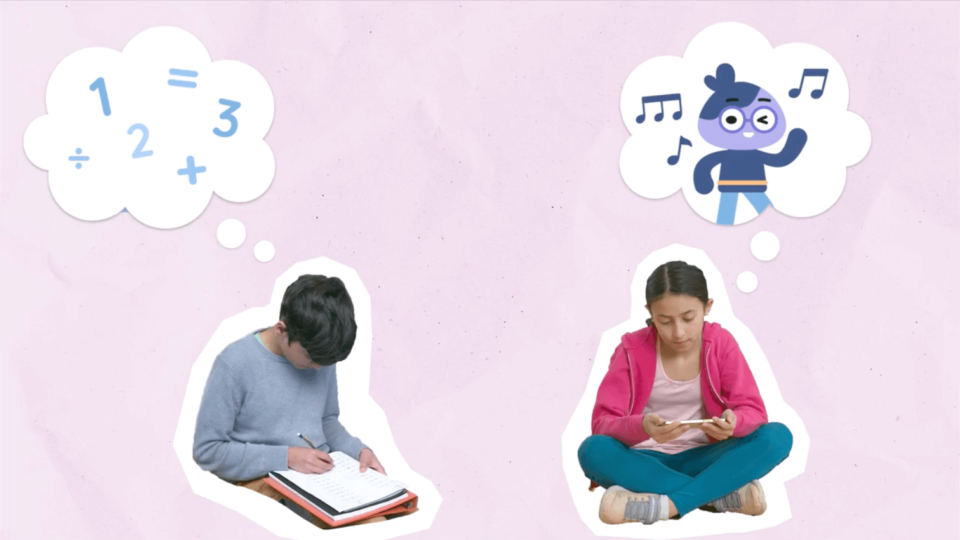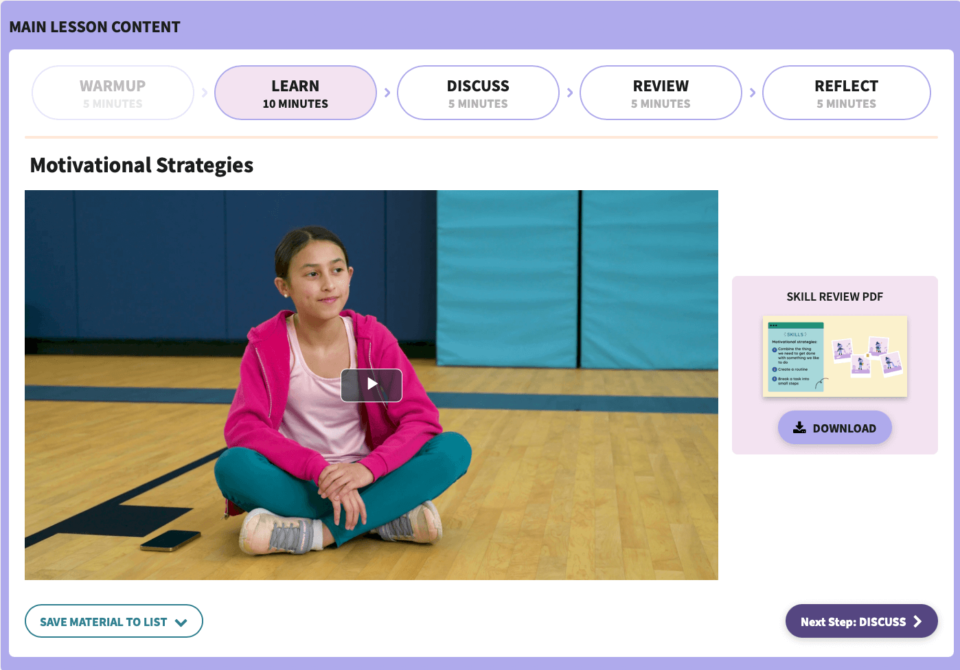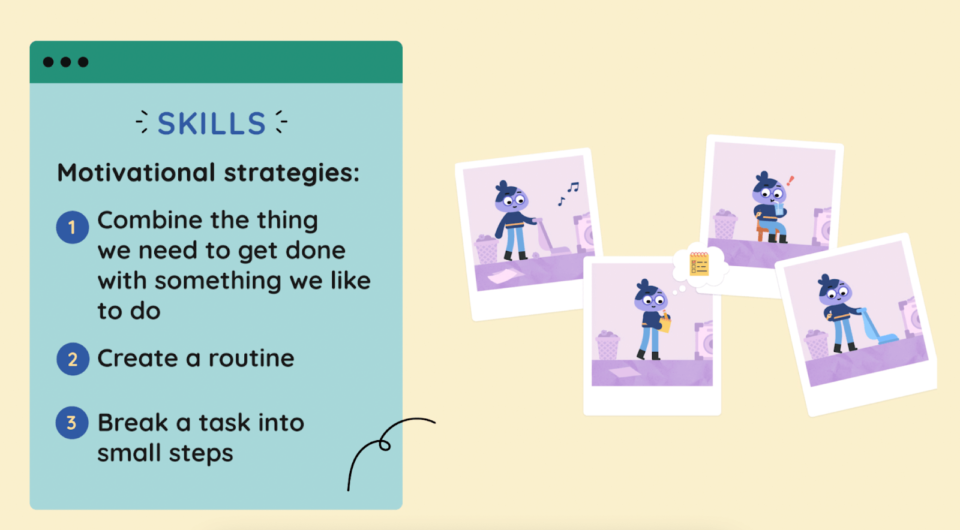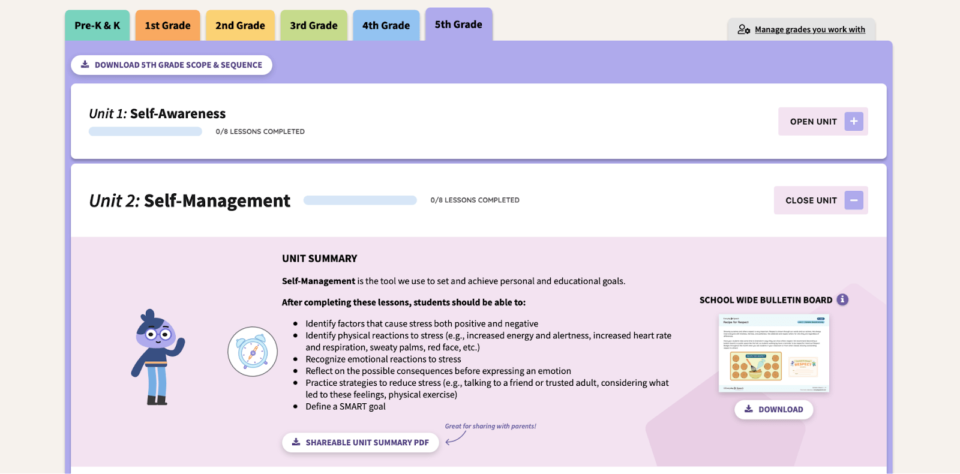
In this free SEL elementary video lesson to teach executive functioning, we’ll share terminology, resources, and strategies you can use with your students right away, no prep required.
First, what is executive functioning?
Schools, educators, and parents love to throw this term around! Is it an all-encompassing umbrella of frontal cortex self-control know-how? Is it our brain’s central operating system when all of its components are well-oiled and talking to one another?
Let’s revisit the basics. It’s important to get on the same page about vocabulary and definitions!
We develop our executive functions from early childhood into adulthood. These are a set of skills that serve us for life.
The executive functions include:
- Planning
- Emotional Regulation
- Task Initiation
- Attention
- Time Management
- Organization
- Creativity
- Self-Monitoring
- Problem-Solving
- Flexibility
- Judgement
- Awareness
- Impulse Control
- Working Memory
When these same executive functions are weak, we may struggle with the following:
- Motivation
- Switching Tasks
- School
- Socializing
- Organization
- Anxiety
- Jobs
- Writing
- Memory
- Regulation
- Following Directions
It is important to support our students in developing executive functioning skills as early as possible.
Materials I Use to Teach Executive Functioning:
- Video: Motivational Strategies
- Journal Prompt: Motivational Strategies Reflection
How I Teach Executive Functioning:
To start, I play the 3-minute Everyday Speech video: Motivational Strategies.

The way the student’s self-talk shifts during her internal monologue is learning gold!
We also see the ways language and self-talk actively mold our thinking and behavior.
Consider the self-talk example presented at the beginning of the video. The students initially thinks:
I don’t want to finish this math homework! I’ve worked on it for 20 minutes already!
Then shifts to:
I can take a 15-minute break now, grab a snack, and then finish my work.
This student effectively makes the linguistic and mental shift needed to regulate his feelings, plan his time, and choose a motivator. This is successful brain coordination (aka executive function) in action!
However, students don’t master perfect executive functioning overnight.
- Co-regulation leads to ➡️ self-regulation
- Adult-scaffolded tasks lead to ➡️ independent work completion
- Adult-led motivational systems lead to ➡️ self-motivation
- Group problem-solving leads to ➡️ independent problem-solving
There are important parallels here and it’’s okay to coach students until they get it.
The video also features a few strategies to help students stay motivated:

Why do these strategies matter?
Motivational strategies are one piece of the executive functioning pie:
- Pairing positive reinforcement with your desired outcomes – What’s your go-to treat to make those IEPs, assessment reports, or progress notes go faster? Mine is coffee.
- Why routines work – Familiar routines create comfort and help stave off anxiety.
- Chunking – Break something overwhelming into manageable bites that our brain and nervous system will allow us to tackle. Have students practice starting when they are calm.
There is so much we can coach:
- Persistence
- Forethought
- Self-monitoring
- Initiation
- Situational Awareness
- Behavioral momentum
We meet students where they are. We teach them the skills they need to engage with their work!
Want extension ideas?
Post this motivational strategies visual on your classroom wall, hold a discussion using this discussion prompt, or lead students in journaling.
Check out the full Grade 5 SEL Scope and Sequence for more tips!
You can also download our full Lesson 13: Motivational Strategies Lesson Plan, which includes:
- Guiding questions
- Lesson objectives
- Student objectives
- CASEL competencies, SEL standards alignment, and benchmarks
- Key terms
- Teaching strategies

Key Takeaways
Strong executive functioning skills guide and enable academic and social learning. When we self-regulate, we free our brains, bodies, and hearts up for joyful learning!
Make whole-class and schoolwide SEL a goal for your school community by using shared SEL language and strategies.
About the Author:
Iris Wong joined Everyday Speech as a contributor in 2021. Over the last decade, she has been a Speech Language Pathologist in PreK-12 public schools, private practice, international schools and community health based early intervention. She currently lives in the San Francisco Bay Area with her husband, two kids and senior dog. Visit her at https://www.linkedin.com/in/iris-l-wong/






